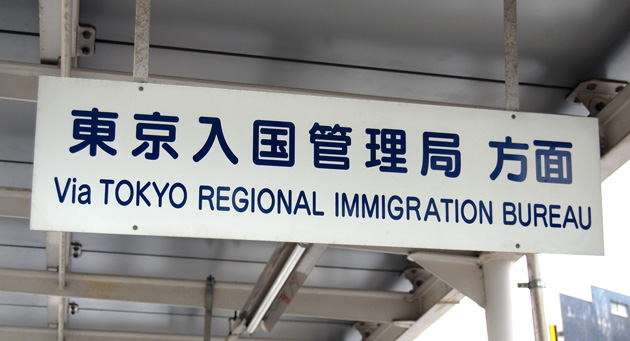New five year visas, changes to re-entry system and new Resident Card introduced from July
Have you heard that Japan is making changes to its immigration and foreigner registration rules this summer?
The changes take effect on July 9 and are designed to make life easier for foreign residents.
Weekender tells you what you need to know.
Japan’s Immigration Bureau is extending the maximum working visa length from three to five years and scrapping re-entry permits for trips abroad of less than a year. If you’re leaving Japan for longer than a year, you’ll still need a re-entry permit, but under the new rules you can get one valid for five years.
In July, the Japanese government will abolish its current alien registration system and register foreigners under the same system Japanese use.
Local governments currently register foreigners in one system and Japanese in another, which makes it hard to coordinate services and keep track of mixed-nationality households. The new registration system is supposed to fix this.
The biggest change you’ll see under the new system is a new gaijin (foreigner registration) card. Called a ‘residence’ or ‘zairyu’ card, this new card will replace the current gaijin card for everyone except diplomats and special permanent residents.
You’ll receive this card from immigration when you extend or change your visa after July. If you’re already a permanent resident, you must apply for a zairyu card by July 2015.
Compared to the current gaijin card, the new zairyu card will display less personal information. However, unlike gaijin cards, zairyu cards will store the information in your resident registry on an embedded IC chip.
The information that local government offices collect will also change: under the new system, you no longer have to register your address in your home country, place of birth, occupation or passport number, but will have to provide your health insurance and pension status.
The new rules affect who you notify when your work or personal circumstances change. Under the old system, when you moved to a new city or left Japan, you didn’t have to tell your former city office.
Under the new system, if you move you must notify both your old and new city offices. The offices will update your address for all government services automatically. Also, if you move overseas temporarily or permanently, you’ll need to tell your current ward or city office.
If any of the personal information on your passport changes (name, nationality, date of birth or sex), or if there’s any change to the work or family circumstances to which your visa is linked, you’ll need to tell immigration.
For example, if you’re here on a work visa and you change jobs, you have to let immigration know.
If you’re here on a spouse visa and get divorced, you’ll also have to tell immigration.
If you have a spouse visa and change jobs, however, you don’t have to notify immigration because your visa isn’t linked to your job.
Immigration knows their offices are a trek for most foreigners in Japan. They are thinking about accepting some notifications online or by mail, but nothing has been decided yet.
On the plus side, immigration will automatically notify your local government of any changes to your visa information, which means you no longer report those changes at the ward or city office.
Even if you’re not planning to move or make any changes to your passport information or visa-linked work or family situation, take a moment now to check that all the details on your gaijin card are correct.
Your local government office is busy preparing a resident record for you and will send you a copy sometime around May.
The resident record is based on the information on your gaijin card, so make sure that’s up to date. If there are errors in the provisional record you receive in May, correct them at your ward or city office.
If your gaijin card details are up to date and your visa is in order, there’s not much else you need to do right now. Just sit back and wait for the new rules to kick in and (hopefully) make life easier for everyone.
For further information visit the Immigration Bureau’s official site: www.immi-moj.go.jp
Text by Annamarie Sasagawa










